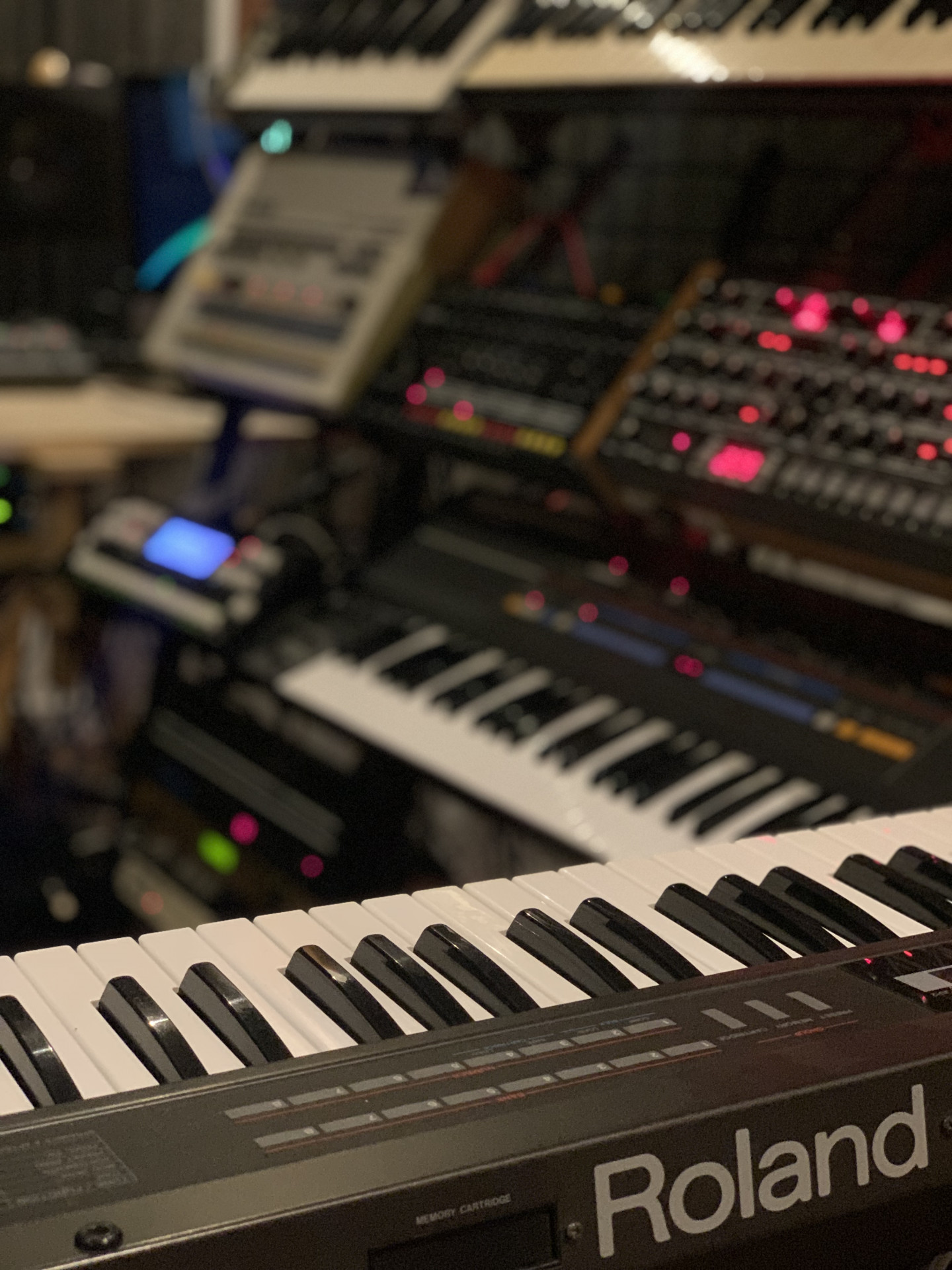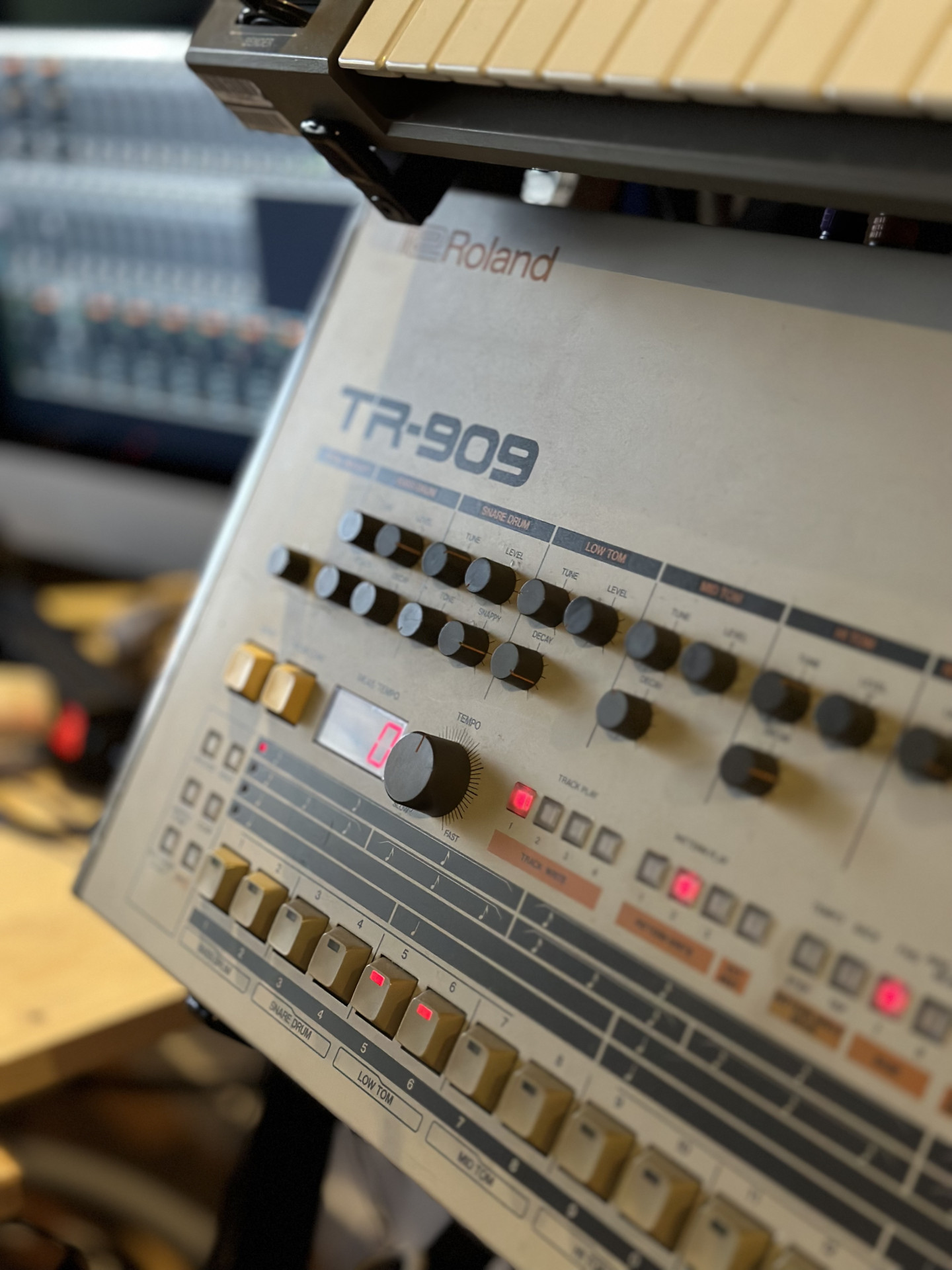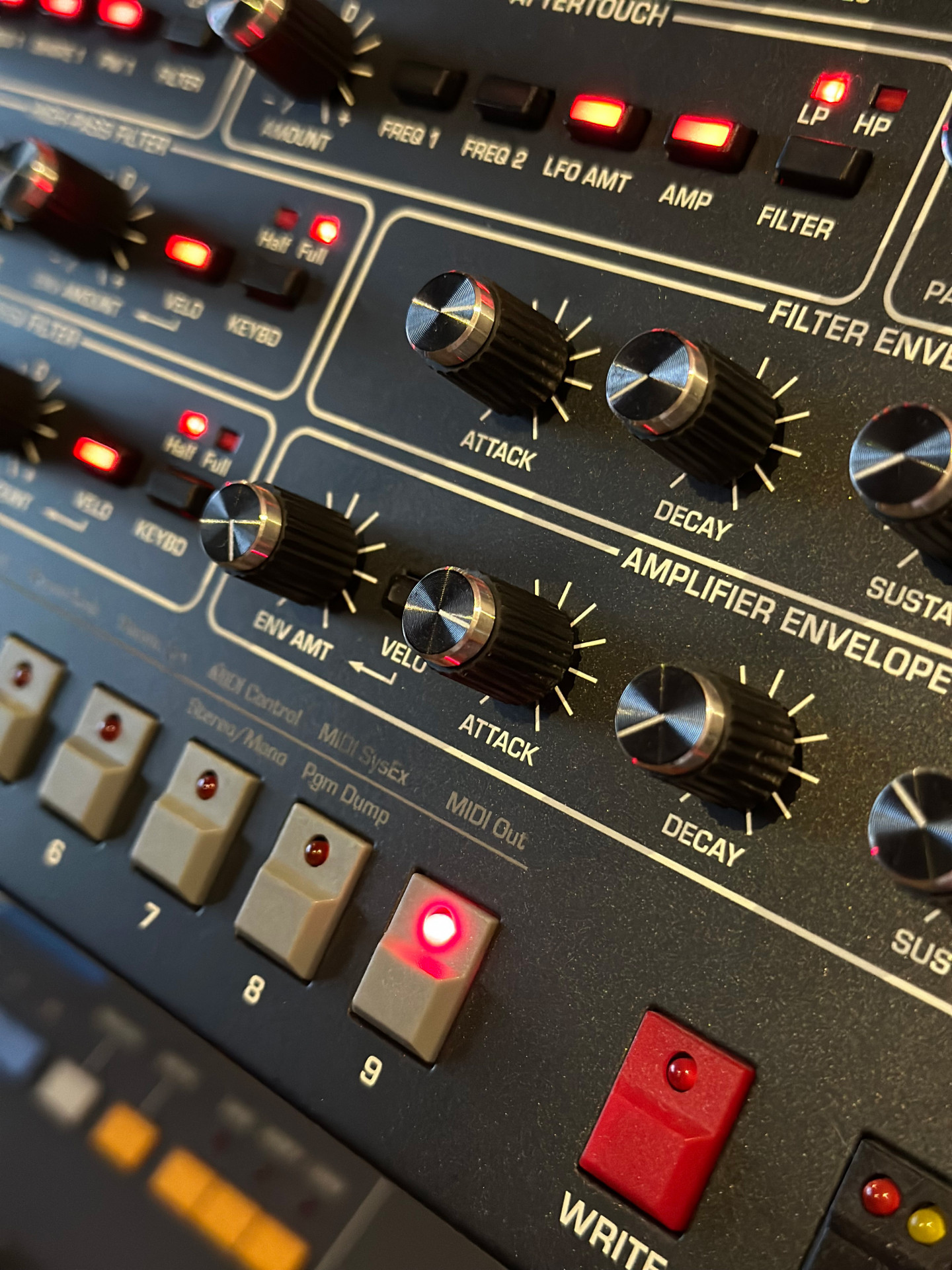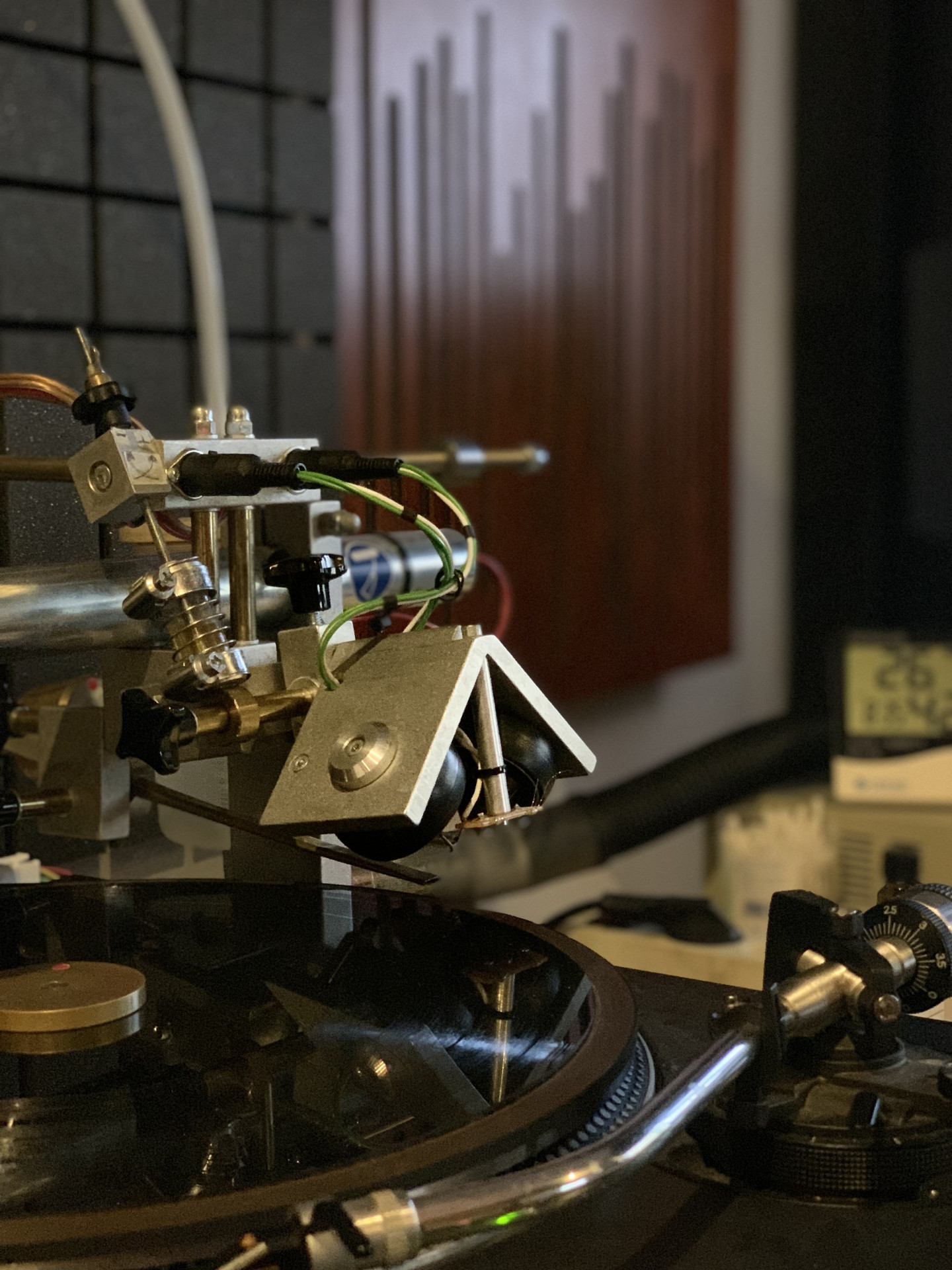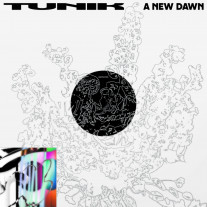Conjuring dance floor rapture, the Argentinian artist has long been making waves in Barcelona’s underground scene with his releases on Nicolas Lutz label My Own Jupiter.
With his Dekmantel Festival 2023 slot coming up, we had a chat with Tunik about his creative process; the Barcelona music scene; and his Dekmantel-debut, A New Dawn...
Words by: Illés Plompen
You’ve released music under the Tunik name for about three years now, but I can imagine you’ve been producing and/or DJing a lot longer than that. How did you first get into making music?
When I was really young, I tried to get into it a bunch of times, but it never really worked out. Then in 2014, a good friend of mine lent me an Elektron Monomachine. I didn’t know anything about synthesizers or how the machine worked, so it was basically like I was learning a foreign language from scratch. I got really frustrated and gave it back after a week. But then I tried a different approach: I took the manual of an Elektron Machinedrum with me, and just read and studied it without the machine. After two or three months of reading, I bought one for myself. I didn’t really know how to make music at that point, but I knew how to copy and paste; the difference between patterns and kits; some basic synthesizer things; so, I was mostly just making weird sounds. But that’s how it all started.
It’s interesting that you began making music on a drum machine, considering that, in 2014, it would’ve probably been easier to download Ableton or FL-Studio. Why did you go for hardware in the first place?
I was already toying around with Ableton actually, but I always found it difficult to keep my focus then, partly because of my ADHD. The machine helped me focus: it looked cool; it sounded good; it had all these physical knobs that I could touch. Somehow it made the whole process a lot easier. Then I got an Elektron Analogue 4, and started learning how to let the machines communicate with each other via midi synchronization. Now, me and my friend basically had the Elektron trilogy – Monomachine, Machinedrum, and Analogue 4 – which was a very fun setup to play around with. It was also nice to not have a computer screen while I was jamming!
How did you experience moving from Argentina to Spain? Did the music scene in Barcelona play a large part in your decision to move there?
It was actually really cool to move here, because when I arrived, a friend called me and said, “Hey, I have these turntables and a mixer, but I can’t have them here, so can you take them?”, and I was like, “Sure!”. Suddenly, I had all this equipment to DJ and produce with, so that’s basically all I did when I wasn’t studying or working. I mostly moved to Barcelona because of the language and the fact that I already had some friends living here, but really fell in love with the city itself over time. The music scene here has also massively improved the last few years. There’s so much going on now: new record shops, studios, clubs, crews, DJs – there’s even a pressing plant coming!
How would you describe Barcelona’s music scene in general?
Barcelona is very diverse. The city offers a lot of different sounds, and new adapters join the scene all the time, which is also really inspiring, because you can see the whole process of them learning how to DJ and finding their style. Like, they might be scared at the beginning, but now they’re one of us! The scene is also diverse in terms of gender and cultural background, but super connected by their love of music and playing records. Everyone in my circle is just very committed and down to help each other. Vinyl is also very strong here. We have a lot of record shops, and most clubs are fully prepared for vinyl DJs. Even the bigger, more mainstream clubs often have two turntables next to their CDJs, which I really like.
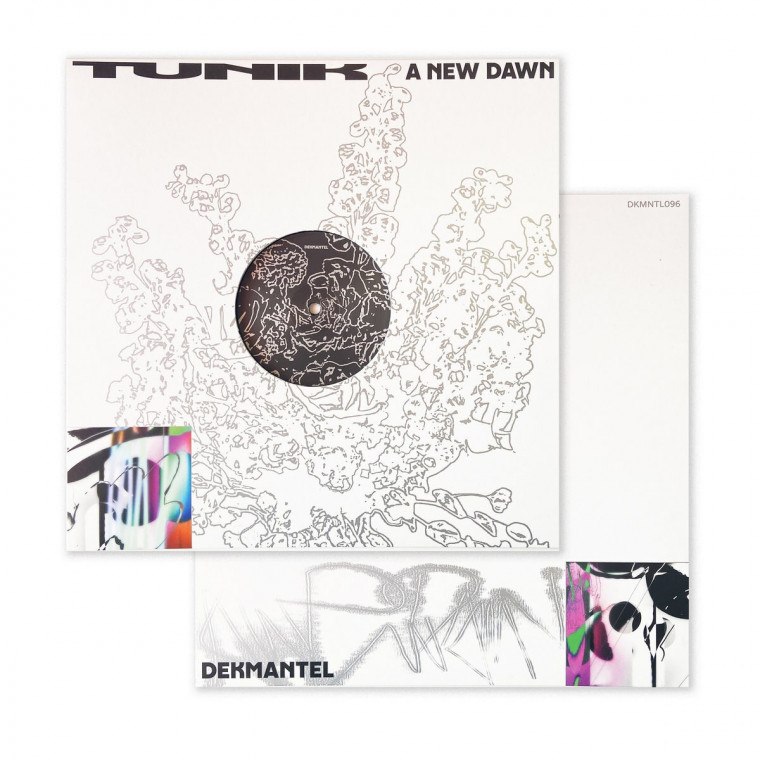
A lot of the melodies and synth textures on your latest release, A New Dawn, reminded me of the more leftfield 00s electro from labels like Bunker, Viewlexx, and Clone. Was that music a direct inspiration for you or is that more of a coincidence?
It makes me really happy that you link my music with these labels, because I like them a lot, but I think it’s pure coincidence. The record is inspired by a series of personal experiences I had last year, from the death of a close friend to the break-up with a one true love, so for me, the record really represents that period of my life. Besides producing, I also DJ a lot, so of course I get inspired by all kinds of music, but it wasn’t like a conscious thing.
"What I produce almost always represents how I’m feeling while I’m making it, which can be melancholy, pain, disturbance, but also peace or hope."
Considering that your music comes from such a personal place, how do you translate these specific experiences into music without writing lyrics?
I express them with my sounds and melodies. What I produce almost always represents how I’m feeling while I’m making it, which can be melancholy, pain, disturbance, but also peace or hope. Those feelings are related to certain scales and melodic motifs. I was not that productive for a while, but then the tracks just came out of me, and I was like “I have to go to the studio”. A New Dawn is what came out of that.
Though melodically, tracks like the “The Aeon” or “Third Eye Connection” are sort of introverted, the hard-hitting production still makes them feel like they were made for the dancefloor first-and-foremost. Is that the environment you have in mind when you make music?
I really don’t have any scenarios in my head when I’m making music. I just turn on my machines and start jamming. There’s always a lot going on in my head while I’m producing, but I feel it only comes through subliminally.
"I definitely think equipment matters: each machine, whether software or hardware, has its own character and sound."
What does your studio look like? Is it a mysterious hole full of wires and old equipment, or a simple desk and a laptop?
I have quite a lot of hardware, but I could always have more, of course! I have some synths, some drum machines, my computer, and a window – luckily! I also have a cutting machine to make dubplates. It’s a skill that I learned during the pandemic – it’s actually what I spent most of 2020 on. Cutting your own dubplates is a lot of work, but it’s much faster than doing it via a pressing plant, so a lot of people in Europe are doing it again, especially DJs!
To what extent do you think it matters what equipment you use when making music?
I definitely think equipment matters: each machine, whether software or hardware, has its own character and sound. I think it’s always nice to try different approaches – some machines are more intuitive and can boost your creativity, and other just sound really good. I’d say the most important thing is to be comfortable with your setup, so you can have fun and actually enjoy the process of making music. That’s what it’s all about for me.
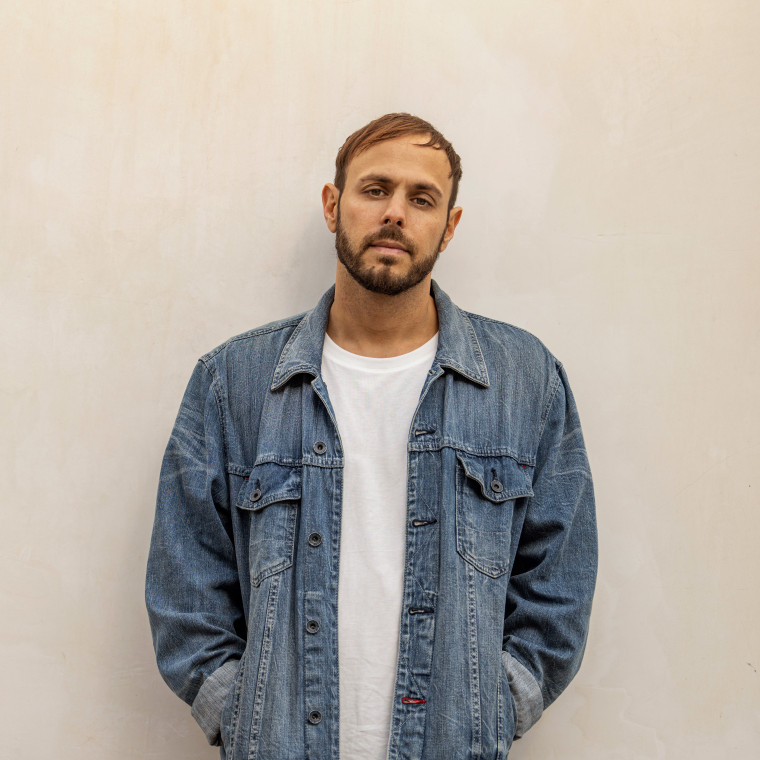
How did you get in touch with us?
Casper sent me a message that he really liked my latest release, 777 EP, and then I met him at a party in Barcelona. We clicked really well; I gave him some records; we stayed in touch for a bit; and then he said that Dekmantel would be open to releasing some music of mine, so I sent him the EP. I’d actually tried to get in touch with Dekmantel a few times already, but didn’t know who to contact, so I just let it go. And then, a few months later, they approached me. That felt pretty crazy!
How does A New Dawn differ from your previous work?
I think the record is very mature, it doesn’t sound like any of my other releases. I’ve always tried to not repeat myself – always changing my drums and synths, and try to do something different with every release, because I get bored very easily.
What can we expect from you in the next year or so? Do you have more releases planned, or are you currently focusing more on DJing and/or performing live?
I actually have another EP planned on Dekmantel that is supposed to be released around the end of the year or maybe early next year. Besides that, I’ll just continue producing, DJing, and doing my thing, basically. I would like to perform live at some point in the future, maybe, but for now I like to keep producing and DJing a separate thing.
You’re playing at Dekmantel Festival soon. What can we expect from your set there?
Oooph… a lot of unreleased music! Honestly, I don’t want to kill the mystique around it, so I think it’s better if people just come listen and check it out for themselves.
